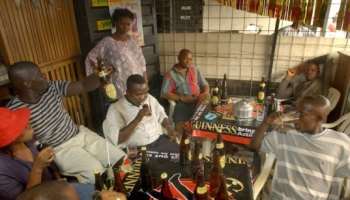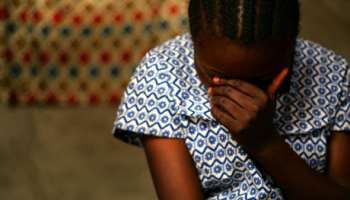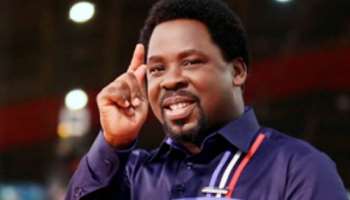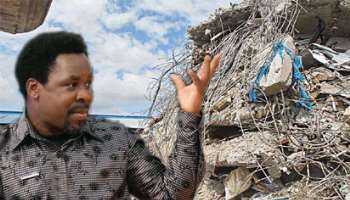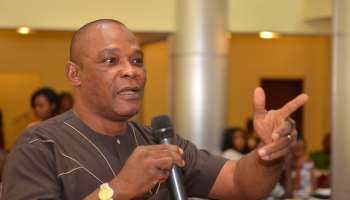THE NIGERIAN PRESS AS ENDANGERED SPECIES
Every year since 1993, the United Nations observes World Press Freedom Day on May 3. It is a day to celebrate the fundamental principles of press freedom. It is a day to evaluate press freedom, to defend the media from attacks on their independence and to pay tribute to journalists who have lost their lives in the line of duty. Noble ideal, true, but sadly an empty rhetoric in Nigeria.
On that day, support for press freedom is chanted like a mantra. Columnists spew bile upon the police for their terrible reputation with press cameras. State House media staff “felicitate with the press”. Activists vent their spleen at legislators over their refusal to pass the Freedom of information bill. In the end, it is another factitious attempt to appear in sync with the rest of the sane world.
But what really does May 3 mean for the Nigerian journalist? It is the day many remember how Bayo Ohu, Assistant Political Editor of the Guardian Newspaper was slain. It is the day another wreath is laid for Edo Ugbawu, judicial correspondent of The Nation Newspaper in the anguished hearts of friends and family. It is the day we remember Nathan Sheleph Dabak and Sunday Gyang Bwede and the futile fury that has morphed into Jos. It is the day we remember verdant dreams slain by the barrel of a gun. It is also the day I wonder just what I might write to get someone mad enough to send a killer in my trail.
They never told you this in journalism school. They never said that to survive as a Nigerian journalist you would need the guile of a viper and the morals of an alley cat. No, the lecturers were vehement in their belief that we were the fourth estate of the political realm. That we have a duty to hold the leaders accountable; that rumours are true until proven false. Sartorial and a sanguine mien, their voices dripping with the wisdom of Egyptian sages, we were dumb enough to believe them. So May 3 is the day we seek to validate a faith that sits leisurely upon the quicksand of a lie.
It was Thomas Carlyle, a British historian of the 19th century, who popularized the term "fourth estate" in reference to the press. Carlyle credited an earlier writer, Edmund Burke during a parliamentary debate in 1787 on the opening up of press reporting of the House of Commons, with the phrase, saying that Burke had observed that in addition to the "three estates" represented in Parliament -- king, lords and commons -- there was a "fourth estate," the press, more powerful than them all. Mr. Carlyle has never been to Nigeria.
According to the Paris-based media freedom group Reporters sans Frontières (RSF), there had fifty three registered press freedom violations since the start of the year. Seven journalists have been detained, 15 have been physically attacked by members of the police forces or other state forces. On September 4, the Lagos-based 'Insider Weekly' was invaded by SSS agents in a manner that would have made the Gestapo proud. On September 17 2008, Channels Television was shut down over a story that claimed that Mr. Yaradua would resign as President on health grounds. And this is in a country where Section 39 of her constitution guarantees freedom of the press. That's why I stopped protesting whenever Mama Aduke wraps my akara balls with pages torn off our constitution.
The United Nations General Assembly proclaimed World Press Freedom Day in 1993, following a recommendation adopted at the twenty-sixth session of UNESCO's General Conference in 1991. At the observance of World Press Freedom Day 2008, organized with the support of UNESCO's New York Office, on Thursday, 1 May, “Access to Information and the Empowerment of People” was the central theme. Following an opening segment, the briefing featured a panel discussion on the global state of access to information and showed how new information technologies allowed for the empowerment of people.
Access to information indeed is key to empowering the people. Knowledge, they say is power – at least certain kinds of knowledge. In Nigeria it seems that government is run on the code of Omertà. Since 1999, the freedom of information bill has remained marooned in the national assembly. Closed door sessions and committee sittings of legislators are closed to the public they represent. Hansards and other official transactions of government are treated with the secrecy of the Chicago mafia. Asset declarations of our leaders are secret but their loot is often made public. Worse still, the President's health is a matter of conjecture. And my professors still wonder why I hate to practice.
Nigeria is signatory to the Universal Declaration of Human Rights (UDHR) and the International Convention on Civil and Political Rights (ICCPR) and the African Charter on Human and Peoples' Rights (ACHPR) where articles 19 and article 9 respectively guarantee freedom of expression and the press. But the country has no law that prevents media censorship rather obnoxious laws that encourage it. Sections 50, 51, 59, 373 – 379 of the Criminal Code Act, LFN 1999; Obscene Publications Act 1961; Official Secrets Act 1962; Newspaper (Amendment) Act 1964; The defamatory and Offensive Publications Decree No 44, 1966 were carefully designed to rein in the press.
To guarantee a free press involves more than semantics or empty platitudes. It involves a conscious desire to create the right social, political, economic and legal conditions through adherence to the constitution and the various charters Nigeria is signatory to. An educated class of political leaders is also germane for a free press. The political space currently occupied by seasoned nincompoops is not healthy for a free press. A journalist's head had been shaved by a state administrator with a broken bottle. Recently, a governor was accused of beating up an activist and several other acts of barbarism perpetrated by leaders whose intellect range a little higher than a bush rat are well documented.
A free press is not a privilege. It is the right of every nation.
Isaac Anyaogu is with the Mass Communication Department, University of Nigeria, Nsukka. EXCLUSIVE FOR NIGERIAFILMS.COM
Latest News
-
 "If You're For Me, I Am For You" - Cubana Chief P
"If You're For Me, I Am For You" - Cubana Chief P -
 "3 Days To Go" - Femi Adebayo Urges Fans To Get S
"3 Days To Go" - Femi Adebayo Urges Fans To Get S -
 "Stop Asking Me Questions About Speed Darlington"
"Stop Asking Me Questions About Speed Darlington" -
 "Benue Is The Most Underdeveloped State I've Ever
"Benue Is The Most Underdeveloped State I've Ever -
 Stan Alieke Urges Young Professionals To Take Lin
Stan Alieke Urges Young Professionals To Take Lin -
 Chizzy Alichi Teases Fans With Baby Reveal, Promot
Chizzy Alichi Teases Fans With Baby Reveal, Promot -
 "I'm Not Wearing Makeup From July 4th Till Decemb
"I'm Not Wearing Makeup From July 4th Till Decemb -
 "Stop The Challenge Of Mocking Kids With Down Syn
"Stop The Challenge Of Mocking Kids With Down Syn -
 Regina Daniels Celebrates Sons As They Mark Birthd
Regina Daniels Celebrates Sons As They Mark Birthd -
 Speed Darlington Threatens To Sue NAPTIP For Defam
Speed Darlington Threatens To Sue NAPTIP For Defam



